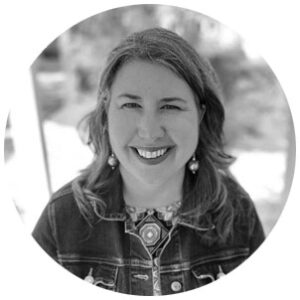SHEA PATRICK | CONTRIBUTOR
Does your women’s ministry have big plans for Bible studies this fall? The primary way that God works in our hearts to make us more like Jesus is through His Word, and digging into God’s Word in community can show us even more of the beauty and truth of God. Hearing the insights of our sisters studying alongside us gives us a richer view of Scripture. A blog I read recently said, “Studying Scripture outside of the influence of God’s people often leaves us building shanty homes next to the beautiful, unshakeable house of God.”[1] Deep Bible study alongside our sisters in Christ can lead to heart transformation.
One fall, ladies at a church I had recently started attending decided that the women needed to do a Bible Study. Past studies were an inconsistent hodgepodge of choices that didn’t seem to have much thought or intention put into them. It had been a while since the church had hosted a Bible study as part of their women’s ministry, so the woman in charge was unsure where to start. She dialed directory assistance and asked for the PCA, and someone in the CE&P office (now CDM) sent her videos and a study. This material was deep and rich in gospel content and was a blessing to the women who participated. While the Lord providentially blessed her dial-up request for material, I think we can take intentional steps in discerning quality studies for the women in our church.
Bible Studies that Serve
We should thoughtfully and prayerfully consider what we are studying with our women. Not all studies are created equal. I too have felt the allure of the most popular, best-advertised Bible studies or those from celebrated authors. An essential question to begin is: what will best serve the women of the church?
The Presbyterian Church in America’s motto is “Faithful to the Scriptures, True to the Reformed faith, Obedient to the Great Commission.” We want to ensure that the studies we choose for our women reflect these same commitments. I have been in Bible studies that are broadly evangelical but miss the richness of covenantal theology or seeing Jesus in all of Scripture. We waste valuable time when we have to constantly explain away or distinguish parts of studies that are not Reformed or gospel-centered. Just as your pastor would not preach his sermons from a non-Reformed view and then explain why this is not what the church believes, the women’s Bible study should not have to do so either.
Even if we narrow down the choices of Bible studies to those that fit with our doctrine and view of Scripture, there are still many good options. Here are some other considerations.
Four Things to Consider in Choosing a Bible Study
What best serves the women who will be studying, as well as the broader church context? Our women’s ministries are an integral part of the mission and vision of the church. We need to consider what would best serve the church as we make study selections. Maybe your church is currently focused on a particular ministry emphasis or a book of the Bible. Are there studies that would help women further engage with what is already happening in the church? Maybe there are women new to the faith who would be most helped by an overview of the story of the Bible or a study that would help them learn how to be students of God’s word. In addition, you’d want a visitor to your church who drops in to be able to benefit even if she has not studied ahead of time. Likewise, a study with a lot of homework that must be completed beforehand in order to follow along could be burdensome to a new mom. Picture the faces and situations of the women in your context that will gather around the Word and how a study might best serve their needs.
Involve your elders in the process. Women’s ministry leaders do not have to figure everything out on their own. One of the things that women often told me as I served as a Regional Advisor was that they wanted input from their elders. Give them opportunities to lead in this way. Ask what would be most helpful in the life of the church or if they are familiar with particular Bible study authors. They could look over studies you are considering and help choose what would be most helpful in discipling the women of your church.
Think outside of the box. You don’t necessarily have to study a traditional Bible study. You may have someone at your church who is a gifted and faithful teacher of Scripture. Maybe she would be willing to teach on what she has been studying in her own personal devotions. You may not even use an actual published study, but instead choose an accessible commentary to help your women dig deep into a particular book of the Bible. One fall, our women studied the book of the Bible that our pastor was preaching from to learn even more from that book of the Bible.
Whatever study you choose, incorporate small group discussion. Pay attention to the discussion questions of the study or come up with something on your own. As we talk about the lesson together, we learn from one another. When I hear a sister in Christ share how a particular passage of Scripture met her in a difficult season of life, it encourages me. Or when a sister shares new insights, the Lord uses it to enrich my experience of His Word. When a sister who has been walking with the Lord for many years shares how she continues to find the Lord faithful to His Word, I am renewed in my enthusiasm for learning and studying the Bible. Scripture comes alive as we study together in community.
What we study with our women is important and there are so many good choices that it can be overwhelming. As we prayerfully and thoughtfully consider the options, we can serve to enrich our church by choosing studies that will disciple women and then marvel at the heart transformation the Lord brings through the regular study of His Word in community.
[1] Auburn Powell. “The Importance of Studying Scripture in Community” http://www.radical.net. April 21, 2020.
Photo by Aaron Burden on Unsplash

Shea Patrick
Shea Patrick is a former Alabama lawyer, who now works as a public school Reading Interventionist. She lives in Orangeburg, South Carolina. She and her pastor-husband currently have five children, including two adopted from foster care. Shea served on the National Women’s team for the PCA as the Regional Advisor for the Mid-Atlantic. She loves her church, Trinity Presbyterian, and serves with the kids, music, missions, and women’s ministry. She was a contributor to “Hinged: Vitally Connected to Christ and His Church” (CDM, January 2020).

